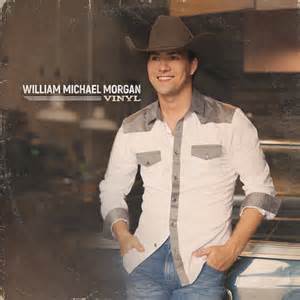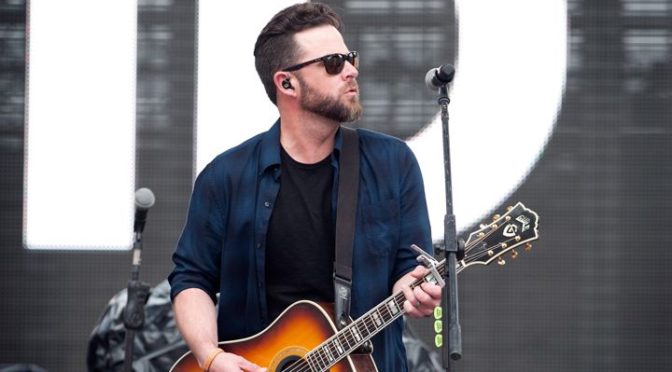There has been a lot of talk lately about genre lines and how important they really are. Does it matter that an album sounds country if the lyrics are bland? Is hearing songs rife with fiddle and steel on the radio really an improvement in itself, or have we gone so far that country-sounding music is praised over good music in general? Do we overlook artists like David Nail and Eric Church, both of whom have put out solid country albums in the past year, while propping up more traditional artists like Mo Pitney and William Michael Morgan just because they sound a certain way? All of this boils down to one question: Does genre really matter at all?
Well, that is a difficult question to answer, and there are differing viewpoints on all sides. This is probably the hardest thing I’ve ever had to write because of the sheer number of people who may disagree, and I could ignore it, but I feel inclined to address it, and to be honest with myself and all of you. Honesty is absent everywhere in music right now, and that is one of the driving factors behind Country Exclusive’s existence, so I am going to do my best to provide it.
The simple answer is no, genre doesn’t matter. Good music is good music regardless of who is singing or what genre it is labeled. This is why I gave Carrie Underwood’s Storyteller two different grades–one as a country album, and one as simply an album. It makes a pretty good pop album. Kelsea Ballerini made a decent pop album too and then sent the singles to country radio–and not the best singles either, I might add, but that’s a different story. I wrote that Courtney Marie Andrews defied genre lines in Honest Life, and while not being the most country album, it is the best album I have reviewed to date. Good music can and does come out of every genre, and that is what we should be looking for the most.
To add to that, I want to say that country can be good without having fiddle and steel. I have written in several Red dirt album reviews a sentiment like, “This isn’t the album to buy if you want fiddle and steel,” followed by praise of the album. Red Dirt has a raw honesty that often surpasses genre, and this is evident in the massive sonic difference between Jason Eady and Reckless Kelly, both of whom have produced an inordinate amount of great music during their respective careers. There’s good pop country too, like the aforementioned Carrie Underwood and David Nail. Eric Church produced one of the better albums of 2015, both musically and lyrically, and you won’t find fiddle or steel anywhere on it. I have written a great deal about Maddie & Tae, advising strict traditionalists to give them a chance because they were bringing country back to radio, even if it was pop country. I praised Aubrib Sellers and her debut album which she labeled “garage country.” I’m far from a country purist, ready to criticize something immediately because it isn’t what country “should” sound like.
However, this idea of good music first has been taken too far. William Michael Morgan got a #1 at radio with “I Met a Girl,” which, while indeed lyrically weak, actually sounded country. It’s a step in the right direction as much as the songwriting on Eric Church’s album or the CMA wins of Chris stapleton. Why? Because something actually resembling country can be heard on country radio for the first time in years. But if genre doesn’t matter, why are we even celebrating? Surely Morgan’s “I Met a Girl” is just more shitty music with fiddle and steel.
It’s because truthfully, genre can’t be ignored completely. If you went to a bookstore and found the books arranged in categories of “good” and “bad,” this wouldn’t help you find a book at all. It’s because these terms are subjective. If you wanted to read crime fiction, you would go to the section marked crime fiction, and from there, you could decide which books you wanted to read. If you found romance in the crime fiction section, you would say the book has been put in the wrong place. Of course, there are books that have elements of both and can therefore be classified as both. Now, let’s apply this to music. Crime fiction might be country, romance might be pop, and the two might blend to make pop country. A book containing many different elements might be labeled just “fiction” or “literature”–in music, this could be Americana, with its blending of many styles. There are probably good books in all the different genres, but since you came looking for crime fiction, you aren’t going to be satisfied with a good romance novel. In the same way, if you want to hear traditional country, you won’t find it in the pop country of Carrie Underwood, the country rock of Eric Church, or the Americana of Jason Isbell.
Therefore, when an artist like Morgan comes along, who actually sounds traditional, it’s right to be excited that he’s getting airplay. It’s right to fight to hear more country on country radio–in fact, many of us ran to underground country simply because of the lack of country on country radio. And it’s right to want to see mainstream Nashville and country radio embrace people like Sturgill Simpson and Margo Price. We can run to Americana and give up on the mainstream altogether, but no matter how you look at it, Americana isn’t country. Some of it is excellent, but it still isn’t country. It isn’t the music we fell in love with, the music we miss. We should praise music of substance regardless of how it sounds, but the lack of country on country radio is just an important a problem as the lack of substance in the music.
I daresay the majority, if not all of us, fell in love with country music, at least in part, by listening to country radio. Maybe you grew up with the legends like Haggard and Nelson. Maybe you remember Keith Whitley and Randy Travis, or maybe you miss the sounds of Alan Jackson, George Strait, and Vince Gill. Maybe you’re like me, and the first country you ever heard was the Dixie Chicks. Regardless, you heard all of them because they were played on country radio and available to the masses, just like their pop country counterparts. Pop country has always been around, but never has it replaced and eradicated the traditional as it has in recent years. Wherever your nostalgia comes from, you fell out of love with country radio after it lost the sound and substance you were drawn to. Today, even though the substance is slowly returning, there is still a noticeable lack of the sound. People growing up with country radio today might associate country with Luke Bryan or Thomas Rhett, both of whom lack the sound and the substance. Or maybe they’ll associate country with Carrie Underwood and Eric Church–they will recognize the substance but lose the sound. But until Morgan and Pardi, there hasn’t been a traditional sound being carried to the masses in years. Pop country isn’t a bad thing, but the complete elimination of the traditional is a terrible thing, and a dangerous thing for country as we know it. Therefore, when an artist like Morgan breaks through and gets a #1 single, we should all be celebrating. There is still much work to be done in Nashville, both in sound and substance, but Morgan, and others like him, are bringing hope for everyone who thought traditional country was lost. He’s not pop country, he’s not country rock, he’s not Americana. He’s just country. And I miss country. I fell in love with country. Country is my passion as a fan and my focus as a reviewer. It’s what I’ll always love the most, even though I praise and listen to plenty of good music from other genres, and it seemed, not long ago, that the music I loved would be lost forever in the mainstream. I am nothing but glad that Morgan and Pardi have broken through, and that young people out there listening to country radio once again have the opportunity to fall in love with real country the way I did. As I said, there is still a lot of work to be done, but let’s all recognize this for what it is, a positive step, and be glad for how far we’ve come.

